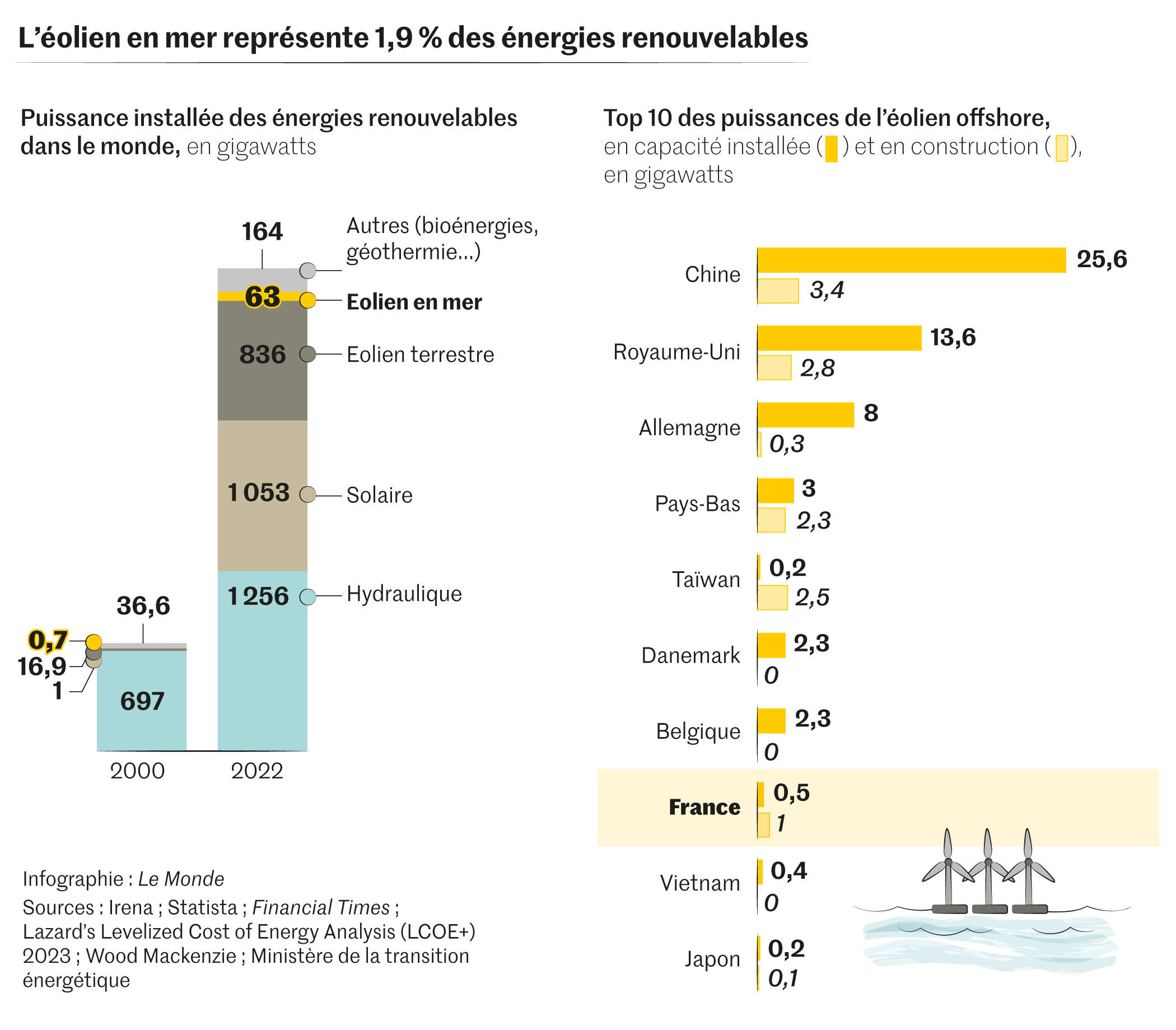Strolling this summer among the heather of Cap Fréhel, in the Côtes-d’Armor, walkers were able to see from the top of the cliffs, on a clear day, their large motionless blades, around fifteen kilometers on the horizon. Soon, the wind turbines in the bay of Saint-Brieuc will start to turn and produce electricity. Like those currently being assembled off the coast of Fécamp (Seine-Maritime). This September, 80% of the Breton windmills built by the Spanish energy company Iberdrola are ready, as are 50% of their Normandy equivalents assembled by EDF Renewables. Their commissioning should take place by December, a year after those of Saint-Nazaire (Loire-Atlantique), the first offshore wind farm in France.
But as autumn approaches, storms darken the sky above the Channel, making the giant turbines disappear from sight. It’s hard not to see it as a metaphor for the clouds that are gathering over offshore wind power throughout the world, causing a wave of panic within a sector that is still young and, until now, struggling. euphoria.
On July 20, Swedish operator Vattenfall halted its wind farm project off the coast of Norfolk, in eastern England. “Rising inflation and interest rates are affecting the entire energy sector, but the geopolitical situation has made offshore wind and its supply chain particularly vulnerable”declared his boss, Anna Borg.
In a few months, the costs of the turbines increased by 40% due to the fever which gripped steel and copper in particular, and the subsidy initially proposed by the public authorities to balance the equation of the project “no longer reflects market conditions”according to her.
Warning signals from 2022
At the beginning of the summer, in the United States, the Anglo-Dutch Shell, in association with Engie, as well as Iberdrola, through its subsidiary Avangrid, had for their part terminated electricity purchase contracts relating to to two wind farm projects off the coast of Massachusetts, 1.2 gigawatts each, which will be delayed while a new tariff is negotiated. Reasons given: Unanticipated supply chain and financing costs, which affect “the entire offshore wind sector” and make the contracts “unachievable” as is.
Iberdrola also postponed another project in Connecticut for the same reason. “The picture is no longer as rosy as everyone imagined until recently”then said Samantha Woodworth, analyst at the Wood Mackenzie firm, observing that “many operators” prospective wind farms were seeking to renegotiate their power purchase contracts.
You have 75.67% of this article left to read. The rest is reserved for subscribers.

